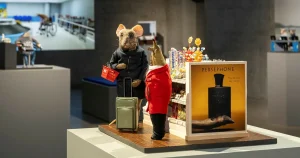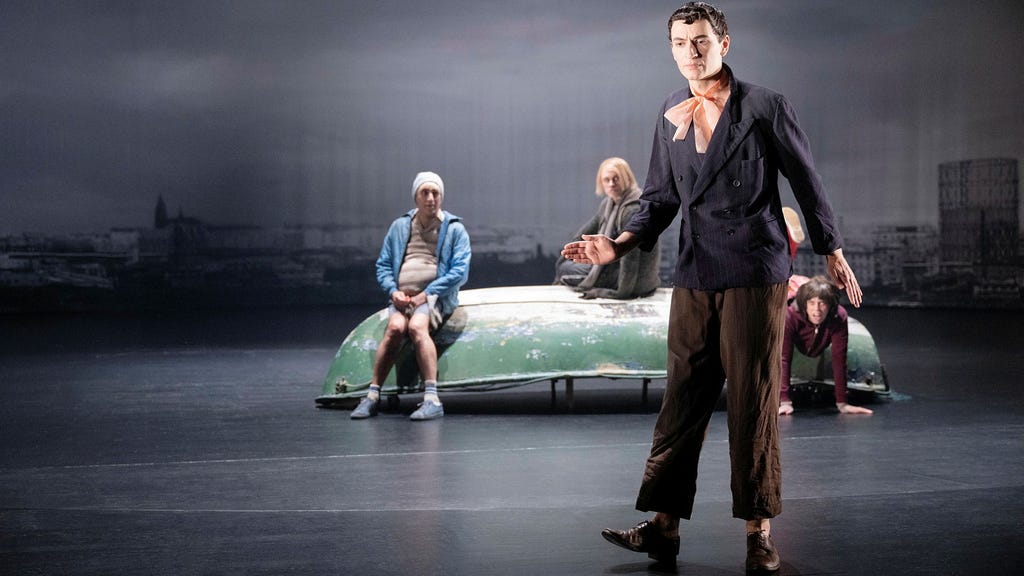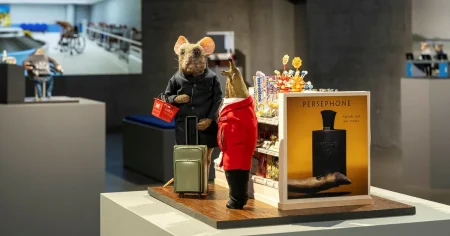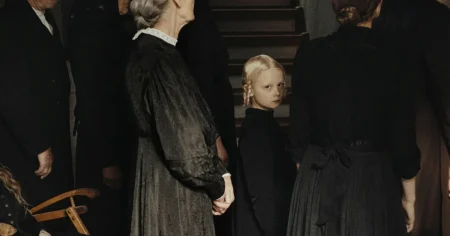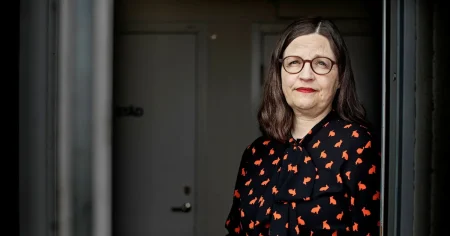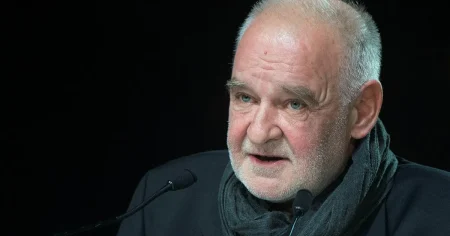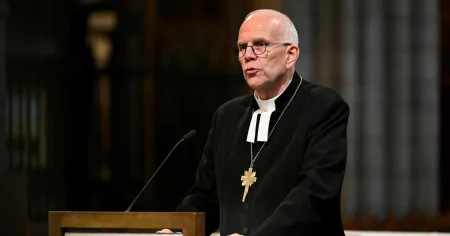A Darkly Comedic and Poignant Reimagining of Pinocchio
Katrine Wiedemann’s production of "Pinocchio" at the Gothenburg City Theatre offers a fresh and playful interpretation of the classic tale, drawing inspiration from Carlo Collodi’s original story, Disney’s animated film, and contemporary socio-political contexts. Similar to Guillermo del Toro’s 2022 film adaptation, Wiedemann sets her version within a fascistic and nationalistic state preparing for war. This backdrop transforms the narrative into a darkly comedic and thought-provoking exploration of conformity and societal pressures, moving away from the moralistic children’s story of a disobedient wooden boy whose nose grows when he lies. Instead, this Pinocchio is more marionette than liar, although a humorous moment sees him balancing a comically long prop nose that requires audience participation for support.
The production’s strength lies in Wiedemann’s inventive direction, the ensemble cast’s dynamic portrayals, and Maja Ravn’s visually striking yet deceptively simple set design. A giant, blank wooden wall serves as a canvas upon which props like a bed, a door, and a fireplace are drawn with bold strokes, brought to life through the actors’ interactions. The performance style leans towards comical slapstick, incorporating elements reminiscent of classic cartoons, complete with winks and exaggerated sound effects. This creates a vibrant and engaging theatrical experience that appeals to both children and adults, while also conveying deeper themes.
Odin Romanus delivers a captivating performance as Pinocchio, portraying him as a charmingly awkward and ultimately touching figure. With slicked-back hair, jerky movements, fluttering eyelids, and stiffly swinging arms, he embodies the marionette’s physicality with captivating precision. In the first act, he portrays a spoiled boy who drives his impoverished father, Geppetto (tenderly played by Kjartan Hansen), to sacrifice everything for frivolous possessions. Upon entering the world outside his home, Pinocchio yearns for acceptance and is easily misled by malicious classmates and powerful military figures, ignoring the warnings of Marta Andersson-Larson’s blue fairy. His naivete is poignantly portrayed as he enthusiastically embraces his recruitment as cannon fodder, believing he has stumbled into a wonderland of fun and games.
The production cleverly uses the symbolic transformation of Pinocchio into a real boy not as a reward, but as a form of punishment. The human world he enters is filled with conflict, bullying, and deception, leaving the audience to contemplate the true costs of humanity. This dark humor is balanced with a glimmer of hope: Pinocchio’s transformation occurs when he selflessly saves his father from drowning. This act of compassion underscores the idea that true humanity is achieved through empathy and connection with others, adding a layer of depth and meaning to the comedic narrative.
Wiedemann masterfully crafts a production that is both entertaining and thought-provoking. The play’s humor, derived from slapstick and witty dialogue, is balanced by its exploration of darker themes such as war, societal pressures, and the complexities of human nature. The visual elements, including the minimalist set design and the actors’ expressive physicality, enhance the storytelling, creating a richly textured and engaging experience. The pacing of the production keeps the audience captivated, seamlessly transitioning between comedic moments and more poignant scenes. This balanced approach allows the production to resonate with a wide audience, offering both light entertainment and deeper reflections on the human condition.
Ultimately, Wiedemann’s "Pinocchio" offers a unique and insightful perspective on a timeless story. By reimagining the narrative within a context of fascism and war, the production explores complex themes of conformity, manipulation, and the search for identity. While retaining the charm and humor of the original tale, Wiedemann’s interpretation delves deeper into the human condition, prompting reflection on the meaning of humanity and the importance of compassion. The production’s success lies in its ability to entertain, provoke thought, and ultimately leave the audience with a renewed appreciation for the enduring power of storytelling.


